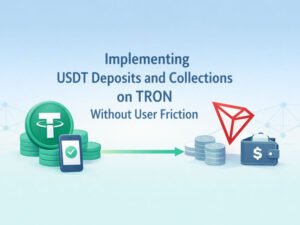The first time purchase of a house is a very thrilling moment, but it is one that requires a lot of financial information to be taken into consideration, which new buyers are often not ready to take into account. Closing costs are one of the areas in which the first-time homebuyer may be lamenting his or her lack of preparation. It is the amount of payments and costs that you pay at the end of the process of the purchase which can be several thousands of dollars to the final amount of outlays. Although most people tend to accept them, there is usually more to negotiate than you realize. Knowing what closing costs consist of and being aware of how to go about lenders and other parties, you will be able to decrease this fiscal strain and have much more money pounds to spend.
Understanding Closing Costs
The closing cost is normally a fee charged to cover the various services and fees that are needed to close your mortgage and transfer the property. These may be appraisal fees, title insurance, and legal charges, lender charges and prepaid fees such as property taxes or homeowners insurance. Although precise credit may change depending on where you live or what kind of loan you accept, they usually add up to two or five percent of purchase price of your house.
First-time buyers should be willing to go through the loan estimate carefully given to them by the lender. This paper describes all the closing expenses that you will be required to pay enabling you to have a proper understanding of each expense and the purpose that it serves. The initial step in determining which among these charges can be lowered or negotiated is to understand what these charges entail.
Communicating with Your Lender
An excellent tip on how to negotiate closing costs is to develop free dialogue with your lender at the initial stage. Probe them on every fee and determine whether they can be dropped or lowered. Depending on your creditworthiness or on your willingness to accept a somewhat increased interest rate, some lenders can be open to a reduction in their origination fees or even extending a credit to cover some costs.
If you work with a mortgage broker Mississauga homebuyers often recommend, they can help you compare multiple loan offers and identify which lender is willing to be more flexible on fee One who knows the market and can lobby on his/her behalf can lead to the real savings that a good mortgage broker will avert.
Negotiating with Other Service Providers
Other parties of the closing process can negotiate their fees beyond your lender. Consider, e.g., you can shop to find a title insurer or you can find a cheaper closing attorney. You can get a cheaper rate by comparing quotes of various providers as well as checking with your favorite service provider whether they can quote a lower price than what you got.
You must also check the third-party costs like the cost of home inspection and real estate appraisal. Although some of these prices are fixed the rest may be flexible more so when you seek a cheaper quote by another qualified practitioner. Never forget that being polite as well as demonstrating that you are prepared can make providers want to give you a better price.
The Value of Preparation
Preparation is the key to successfully negotiating closing costs. Prior to beginning the process of house shopping, make sure you review your finances and find out the average closing prices in your region so you will know what to expect. This information will give you the power to pose the correct questions and make a negotiation with confidence.
As first-time homebuyers take the time to understand their choices, stay honest with their partners, and evaluate various methods, hundreds or even thousands of dollars can usually be saved. Closing costs do not need to be a surprise or an upsurge in a big amount of money, if properly planned and with adequate assistance of professionals, such as a mortgage broker.
Considering Seller Contributions
The other tip that will help you to reduce the closing cost is to ask the seller to contribute a certain number of closing costs to the purchase agreement. Although this might not be possible in a very competitive market things work out most of the time where the sellers are willing to make contributions as long as it’s going to bring the deal together. This is particularly usually present where the house has been in the market long or when you accept to pay their asking price.
The seller’s closing costs can cut substantially the money you should contribute to the closing table. Consult with your real estate agent and add such a request to your offer and negotiate it efficiently with the seller agent.










